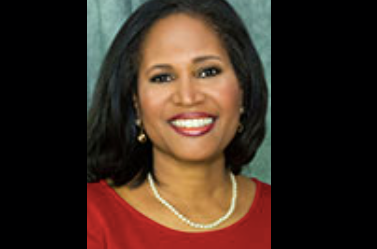
(WBBM NEWSRADIO) — Create a “Chicago Reserve” composed of 1,000 retired Chicago police officers to handle “crucial, but non-dangerous duties.”
Move to a two-shift system — with officers working 10 hours a day, four days a week — to get “more boots on the ground” and give officers “guaranteed multiple days off in a row every week” to de-compress and spend time with their families.
Bolster the “grossly understaffed” detective ranks by 200 — with a wave of promotions and by hiring back retired detectives — to solve more murders and shootings and improve a homicide clearance rate that remains the “worst in the nation.”
Embrace technology by adding POD cameras and using “drones as first responders.”
Mayoral challenger Sophia King has big plans to confront the spike in violent crime — plans that go far beyond her previously-stated vow to fire CPD Supt. David Brown and hire a replacement “with Chicago roots who is committed to expanding community policing in every neighborhood.”
The crime-fighting plan unveiled Thursday shows the retiring 4th Ward alderperson has thought long and hard about ways to bolster neighborhood police protection, rebuild trust between citizens and police and stop the exodus of police officers that has seen nearly 1,000 retire already this year.
King’s proposed “Chicago Reserve” of 1,000 retired police officers, combined with filling 1,600 vacancies over two years, would set the stage to accomplish her goal of “distributing officers more equitably.”
Last year, a model designed by the University of Chicago Crime Lab created a formula that includes calls for service, total violent crime in the area, population size and attrition of retiring officers and called for reassigning veterans and rookies immediately, based on those and other factors.
Mayor Lori Lightfoot and Brown, instead, chose a politically timid approach.
High-crime districts would get more manpower as rookies graduate from the academy and complete their 18-month probation. It would take about two years to get South and West Side police districts — where shootings and drug dealing are worst — the levels of manpower they need.
On Thursday, King vowed to tackle the problem head on with retirees, 1,600 new hires over two years and by disbanding citywide task forces she branded a “disaster” and returning those 875 officers to the 22 police districts.
Retired reserve officers would be armed, but handle “crucial, but non-dangerous” duties, she said.
“You can use them during surge opportunities during the summer, for festivals, for other events, along the lakefront, on the beaches. There’s also some responsibilities on the desk that require officers. That frees up more officers to patrol the communities,” King told the Sun-Times.
The two-shift system—ten hours, four days-a-week—is intended to bolster rock-bottom police morale that has officers leaving faster than the city can replace them.
To date, 693 officers have begun their six months of training — far from enough to keep pace with the 949 retirements through Sept. 30 this year compared to 973 all of last year, and 625 in 2020.
The Chicago Police Department now has 11,649 sworn officers, down from 13,353 officers before Lightfoot took office.
“It would resolve a couple issues. Number one, police being over-worked and not having any time off. It would guarantee time off. Also, it would put more officers in communities immediately—up to 50 percent” more, King said.
Lightfoot and Brown claim the homicide clearance rate is getting better. King doesn’t buy it. Which is why she wants to bolster the detective ranks by 200.
“What do they say? Figures don’t lie. I won’t repeat the rest,” she said, pegging the clearance rate at “less than 17 percent.”
“They’re using cases from years ago to add to the clearance rate now. That’s just not how it’s done.”
As chair of the City Council’s Progressive Caucus, King helped pressure Lightfoot to launch an alternative response plan that allows mental health professionals to respond to “non-violent” situations that comprise more than half of all 911 calls.
Her new plan calls for “rapidly expanding” those response programs, creating a “24-hour diversion center” and developing “additional pre-arrest diversions for substance abuse, mental health and extreme poverty.”
She also wants to create an “Office of Violence Prevention” and use a mix of city funds and private to “dramatically ramp up”—to the tune of $200 million-a-year— violence intervention programs charged with “moving young people from the streets to jobs.”
The proposal to use crime-fighting technology as a force-multiplier is one of King’s more intriguing ideas.
It comes as veteran officers complain that new policies on vehicle chases and foot pursuits have tied their hands and severely limited their ability to pursue and apprehend suspects.
“It’s past time that Chicago fully embrace new technology like body cameras linked to smart holsters and drones to assist in certain situations where physical pursuit or investigation may be dangerous for officers or residents,” the plan states.
(Source: Sun-Times Media Wire & Chicago Sun-Times 2022. All Rights Reserved. This material may not be published, broadcast, rewritten, or redistributed.)
Listen to WBBM Newsradio now on Audacy!
Sign up and follow WBBM Newsradio
Facebook | Twitter | Instagram





